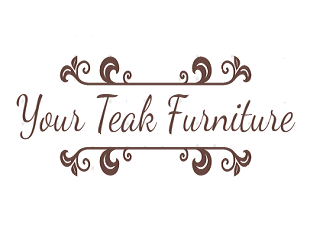In today’s complex landscape, selecting the right insurance policy is crucial for protecting assets and ensuring peace of mind. With a plethora of options available, understanding which policy aligns with your unique needs can be overwhelming. This guide aims to elucidate the key considerations in choosing the best insurance policy, with a focus on commercial truck insurance and business insurance.
Understanding Your Insurance Needs
Before diving into specific types of insurance, it is essential to assess your individual or organizational needs. Insurance policies are not one-size-fits-all; they vary significantly based on factors such as the nature of your business, the assets you own, and the risks you face. A comprehensive risk assessment will help identify the types of coverage required and the extent of protection needed.
Commercial Truck Insurance: Protecting Your Fleet
For businesses that operate commercial trucks, choosing the right commercial truck insurance is critical. This type of insurance is designed to cover the unique risks associated with transporting goods or passengers for business purposes. Here are key elements to consider when evaluating commercial truck insurance options:
- Coverage Types
- Liability Coverage: This covers damages and injuries caused to others in accidents where your truck is at fault. It includes both bodily injury and property damage.
- Cargo Insurance: Essential for businesses that transport goods, this coverage protects against loss or damage to the cargo being transported.
- Physical Damage Coverage: This includes collision and comprehensive coverage to protect your truck from damages resulting from accidents, theft, or natural disasters.
- Policy Limits and Deductibles
Assess the coverage limits and deductibles of potential policies. Higher limits provide more extensive protection but may come with increased premiums. Conversely, lower deductibles may result in more affordable premiums but could lead to higher out-of-pocket expenses in the event of a claim.
- Industry-Specific Considerations
Different industries have varying risks and requirements. For instance, a trucking company transporting hazardous materials will need specialized coverage compared to a company hauling general freight. Ensure the policy is tailored to your industry’s specific needs.
- Claims History and Service Quality
Review the insurer’s reputation for handling claims and their customer service track record. A reliable insurer will provide efficient claims processing and support, which is crucial for minimizing downtime and financial loss.
Business Insurance: Comprehensive Protection for Your Enterprise
Business insurance encompasses a range of policies designed to protect various aspects of a business. It is an essential safeguard against financial losses arising from unexpected events. Key components of business insurance include:
- General Liability Insurance
This policy covers general business risks such as bodily injury, property damage, and personal injury claims. It is a fundamental coverage for any business, providing protection against common liabilities.
- Property Insurance
Property insurance protects physical assets, including buildings, equipment, and inventory, against risks such as fire, theft, and vandalism. This coverage is vital for safeguarding the tangible assets crucial to business operations.
- Professional Liability Insurance
Also known as errors and omissions insurance, this policy provides protection against claims of negligence or inadequate performance in professional services. It is particularly relevant for businesses offering professional advice or services.
- Workers’ Compensation Insurance
Workers’ compensation insurance is mandatory in many jurisdictions and covers medical expenses and lost wages for employees who are injured or become ill due to their work. It also provides protection against lawsuits related to workplace injuries.
- Business Interruption Insurance
This coverage helps compensate for lost income and operational expenses if your business is forced to close temporarily due to a covered peril, such as a natural disaster. It is essential for maintaining financial stability during unforeseen disruptions.
Choosing the Right Policy: Key Considerations
When selecting insurance policies, consider the following factors:
- Assess Your Risks: Identify potential risks and liabilities specific to your business or personal situation. This assessment will guide you in selecting appropriate coverage.
- Compare Policies: Obtain quotes from multiple insurers and compare the coverage options, limits, and premiums. Look beyond the price and evaluate the quality of coverage and service.
- Consult with Professionals: Engage with insurance brokers or advisors who can provide expert guidance tailored to your needs. They can help navigate complex insurance options and recommend suitable policies.
Conclusion
Choosing the right insurance policy is a critical decision that requires careful consideration of your unique needs and risks. Whether you are looking at commercial truck insurance to protect your fleet or business insurance to safeguard your enterprise, understanding the available options and their implications is essential. By assessing your needs, comparing policies, and consulting with experts, you can make an informed choice that provides the protection you need and supports your peace of mind.

